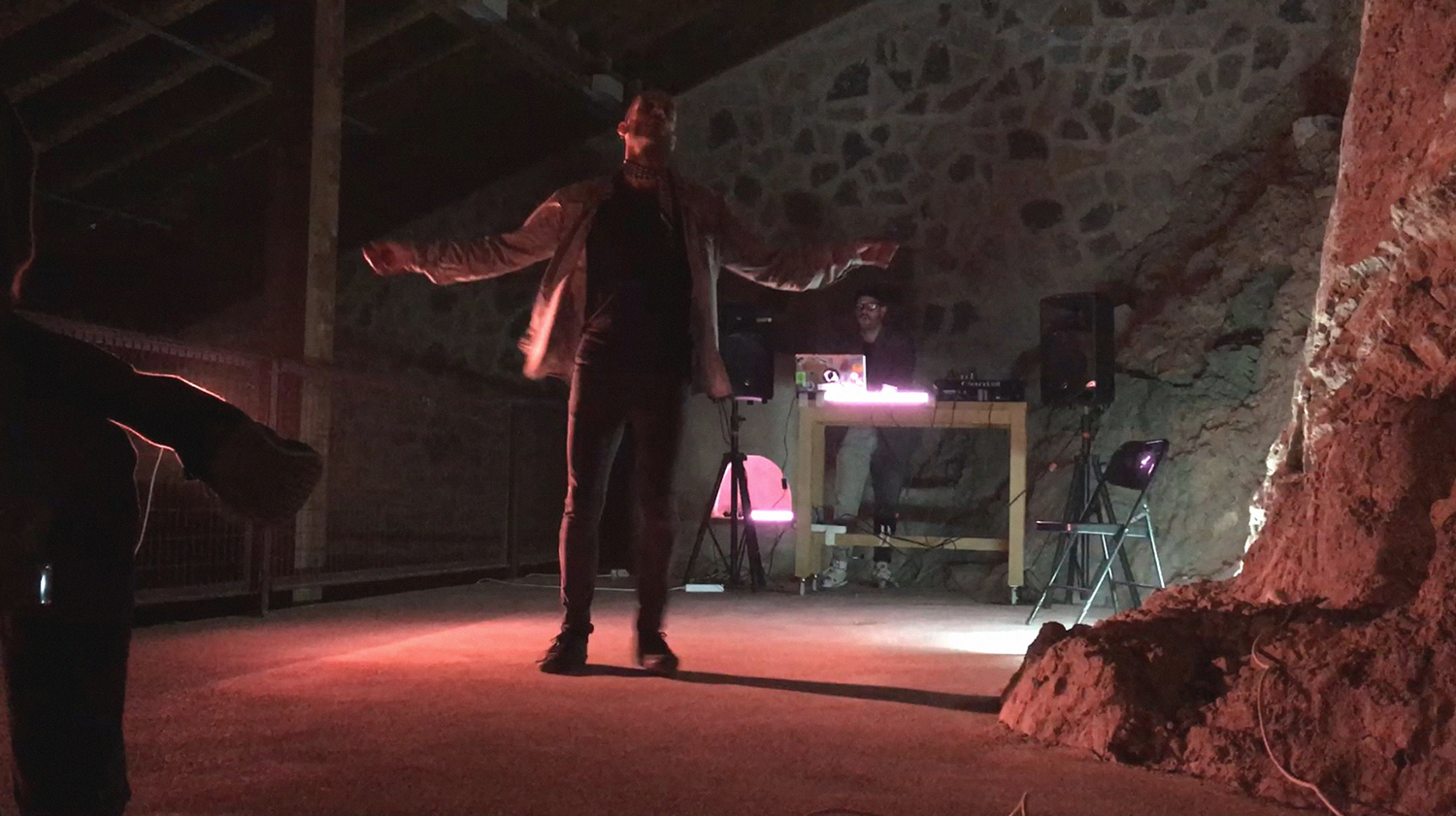
25 Jan Derek Van Den Bulcke
Residency period: October-November 2020
Residency realised in collaboration with Daniel Hernandez
Flamenco in becoming
Dani Hernández and Derek Van Den Bulcke share a research process in which they blur the academic and consensual limits of the ortodox flamenco.
Sound and movement establish a dialogue full of questions and abysses, in which with one hand they grasp the legacy of flamenco and with the other they expand its borders. Borders that have been in constant movement, not only because flamenco is an artistic expression that comes from a nomadic community -the gypsy- but because, as Didi-Huberman says, the morphology of every art form depends on its migrations and its survival in a long time.
Dani and Derek explore elements such as “contradiction”, intrinsic in flamenco, -between control and catharsis, ecstasy and stillness, violence and softness- breaking melodies and rhythms with movement, dissolving the cante in electronic rhythms, placing an electric guitar instead of the Spanish one, or the concrete floor instead of the “tablao”. With their display one gets immersed in a polytemporal journey that makes us rethink the essence of the roots and the mysticism of the authentic.
If flamenco “needs a landscape (even if it is underground, as in the case of the cantes mineros), to sink its roots into a specific geographical and cultural territory”, What happens if it has to live in a time of urbanization and rootlessness, as these two artist do? Can’t the “duende”- the spirit of flamenco-, who has disappeared from the streets of the gypsy neighborhoods, fed up with his confinement in the tablaos for tourists, and in the academia, get lost in the raves and in the clubs of any capital? Isn’t it that, in his becoming, he needs to embody new gestures that incorporate the noise and the loop as they are the soundscape of our times?
This research works with both the aesthetic and the political, since the artists claim this culture not as possessors, but as co-owners of a pro-common, feeding it with their own experience, collectively rewriting its norms to form a broader community of our time.








